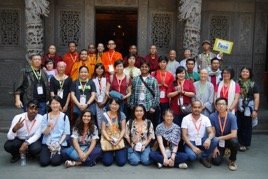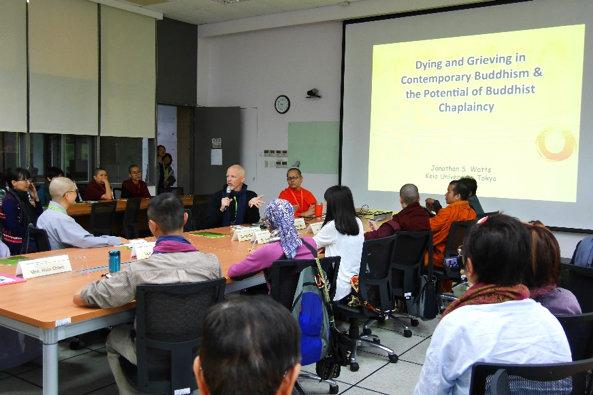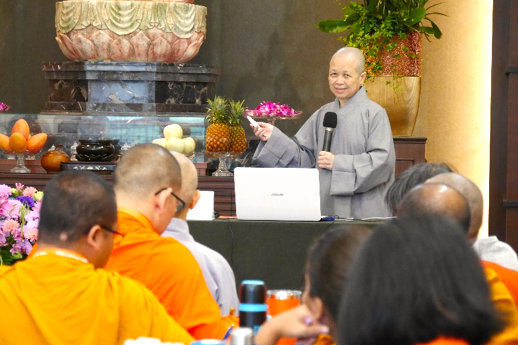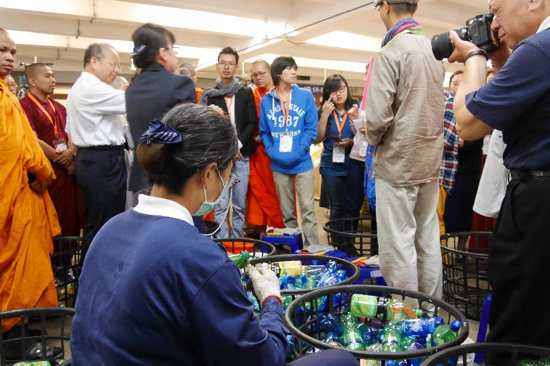By Arjun Kumar | Fundraising Coordinator
Twenty seven (27) students, including monks and nuns from 10 countries joined this course. Participants were female and male leaders, both lay and ordained Buddhists and others, who are active in social change. Our graduates from previous courses have been very active in Indonesia, India and Myanmar, and the facilitators volunteering on this course were themselves alumni.
Training Objectives
Specific outcomes identified by participants will be incorporated into action plans developed throughout the training. Outcomes will be at several levels including: personal, organizational, country and regional.
Training Activities
The training curriculum is based on three-mode learning process involving intellectual, spiritual and physical practice. The sessions used various methods for learning, as well exposure trips to understand the current situation in Taiwan and how socially engaged Buddhism is being used to address it.
Initially the students separated into their country groups to reflect and discuss the core issues in their countries, and to brainstorm about what kind of social action Buddhist organizations could effectively offer.
The training curriculum focused on Socially Engaged Buddhism through practical experiential examination of issues and skills using Buddhist Social Analysis, Power Analysis, Deep Listening, Compassionate Communication, Gender Inequality and Social Injustice. This helped students experience directly issues of power, and marginalization due to social inequity, while encouraging them to take up action in areas of Social Development, Social Service and Social Change.
Students also learned about Meditation on Mindfulness, Buddhism and Health and about Taiwan’s History of Engaged Buddhism which was traced through various Buddhist teachers. Other interesting topics included the work of Buddhist chaplaincy and hospice carein Taiwan; Technology, Media and Engaged Buddhism, and Dr. Ambedkar - Buddhism and Social Justice. A panel of activists working on issues of LGBT Rights, animal protection, human rights and environmental protection discussed their areas of work and the challenges they faced.
Students appreciated the exposure visits to a variety of organizations including to the Tzu Chi Environmental Protection Mission which operates in 98 countries, with thousands of volunteers trained to assist the recycling mission. They also visited the Buddhist Education Foundation which was designed to encourage young people to do dharma work, and to make Buddhist teachings more accessible.
After having visited the many inspiring social action projects undertaken by the engaged Buddhist organizations in Taiwan, the students returned filled with inspiration and learning. Then they prepared to address the issues in their own countries, and the social action projects they want to pursue in the areas of social welfare and working for structural change.
The students expressed their tremendous gratitude to the nuns and kind supporters for their generous support. With heartfelt thanks they expressed, “Even if we are not perfect, we can still help to make the world a better place.”
Links:
Project reports on GlobalGiving are posted directly to globalgiving.org by Project Leaders as they are completed, generally every 3-4 months. To protect the integrity of these documents, GlobalGiving does not alter them; therefore you may find some language or formatting issues.
If you donate to this project or have donated to this project, you can receive an email when this project posts a report. You can also subscribe for reports without donating.



